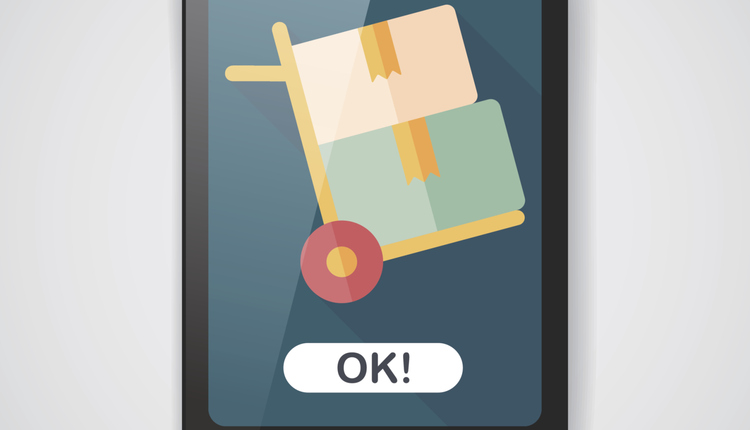In the early 1900s, an inventor from Chicago named Arthur Pitney patented the postage meter, an innovative mechanical device that eliminated the laborious and perhaps unhealthy chore of licking and affixing stamps (Arthur was no philatelic). The meter simplified mailing letters for businesses by replacing stamps with a printed mark on the envelope referred to as an "indicia." This creation also benefited the USPS because it provided them with the ability to significantly reduce the production of stamps (one could argue Mr. Pitney was the founding father of the "Green" revolution). Arthur later connected with Walter Bowes who together formed Pitney Bowes (PBI), the recognized leader in mail processing equipment.
Pitney Bowes lobbied the US government to ensure postage meters could only be rented, not sold. This clever unique business approach was envied and later imitated by numerous companies worldwide, and of course it provided Pitney Bowes with a permanent and lucrative recurring revenue stream.
What these two entrepreneurs didn't see coming, however, was the declining use of the postage meter that occurred at the start of the 21st century. This is a time when businesses are using email instead of snail mail and the Internet to print postage instead of renting physical postage meters to process traditional letter mail. The postage meter and letter mail are unavoidably linked. While mail volume is on the decline, there's still a need for the postage meter, but as Thomas Freidman explained in The World Is Flat, change is coming fast. The mailing industry is not immune.
So which technology is best for your company? When it pertains to the use of First Class letter mail or bulk mail advertisements, the postage meter has one clear advantage over Internet postage: it enables letter mail processing, that is, it will print postage, seal, and stack envelopes at varying speeds. In case it isn't obvious, you can't do this with a computer and Internet postage (at least not yet, anyway) and therefore if you require automated mail processing, you must rent a postage meter.
There are only a few options to get one. The company with the largest market share is Pitney Bowes (www.pb.com); Neopost is a close second (www.neopost.com); and Postalia a distant third (www.postalia.com). Recently however consumers have been given a new choice (no pun intended) with Choice Solutions, a certified reseller of Pitney Bowes equipment who will be happy to provide the same equipment you can buy directly from Pitney Bowes with some added value.
If, however, your application calls for postage outside of the realm of First Class mail, you may want to consider using Internet postage. A quick Google search will reveal the leaders in this arena are www.stamps.com and www.endicia.com. Printing postage electronically has the following advantages over a postage meter:
· Convenience. The ability to print postage from any computer. This is a tremendous convenience for start ups, SOHOs, ecommerce companies and businesses that prefer to "go green."
· Electronic connectivity with shopping carts
· No physical space requirements
· No inspection requirements (to avoid tampering and illegal use, meters have to be inspected by the USPS)
· No repairs (meters break, the Internet doesn't)
· No proprietary expensive ink cartridges to replace
· Lower monthly rental cost (generally 50 - 70% less than meters)
· Automated forms printing (certified, registered, customs etc.)
· Electronic tracking
So when it's time to decide which method works best for you, consider the application-do I need to process First Class letter mail? If not, Internet postage is probably the way to go. If your mailing application is more complex, send me a request and I'll be delighted to help you decide.
I hope this information helps you Ship Better and Save Money!
Pitney Bowes lobbied the US government to ensure postage meters could only be rented, not sold. This clever unique business approach was envied and later imitated by numerous companies worldwide, and of course it provided Pitney Bowes with a permanent and lucrative recurring revenue stream.
What these two entrepreneurs didn't see coming, however, was the declining use of the postage meter that occurred at the start of the 21st century. This is a time when businesses are using email instead of snail mail and the Internet to print postage instead of renting physical postage meters to process traditional letter mail. The postage meter and letter mail are unavoidably linked. While mail volume is on the decline, there's still a need for the postage meter, but as Thomas Freidman explained in The World Is Flat, change is coming fast. The mailing industry is not immune.
So which technology is best for your company? When it pertains to the use of First Class letter mail or bulk mail advertisements, the postage meter has one clear advantage over Internet postage: it enables letter mail processing, that is, it will print postage, seal, and stack envelopes at varying speeds. In case it isn't obvious, you can't do this with a computer and Internet postage (at least not yet, anyway) and therefore if you require automated mail processing, you must rent a postage meter.
There are only a few options to get one. The company with the largest market share is Pitney Bowes (www.pb.com); Neopost is a close second (www.neopost.com); and Postalia a distant third (www.postalia.com). Recently however consumers have been given a new choice (no pun intended) with Choice Solutions, a certified reseller of Pitney Bowes equipment who will be happy to provide the same equipment you can buy directly from Pitney Bowes with some added value.
If, however, your application calls for postage outside of the realm of First Class mail, you may want to consider using Internet postage. A quick Google search will reveal the leaders in this arena are www.stamps.com and www.endicia.com. Printing postage electronically has the following advantages over a postage meter:
· Convenience. The ability to print postage from any computer. This is a tremendous convenience for start ups, SOHOs, ecommerce companies and businesses that prefer to "go green."
· Electronic connectivity with shopping carts
· No physical space requirements
· No inspection requirements (to avoid tampering and illegal use, meters have to be inspected by the USPS)
· No repairs (meters break, the Internet doesn't)
· No proprietary expensive ink cartridges to replace
· Lower monthly rental cost (generally 50 - 70% less than meters)
· Automated forms printing (certified, registered, customs etc.)
· Electronic tracking
So when it's time to decide which method works best for you, consider the application-do I need to process First Class letter mail? If not, Internet postage is probably the way to go. If your mailing application is more complex, send me a request and I'll be delighted to help you decide.
I hope this information helps you Ship Better and Save Money!








